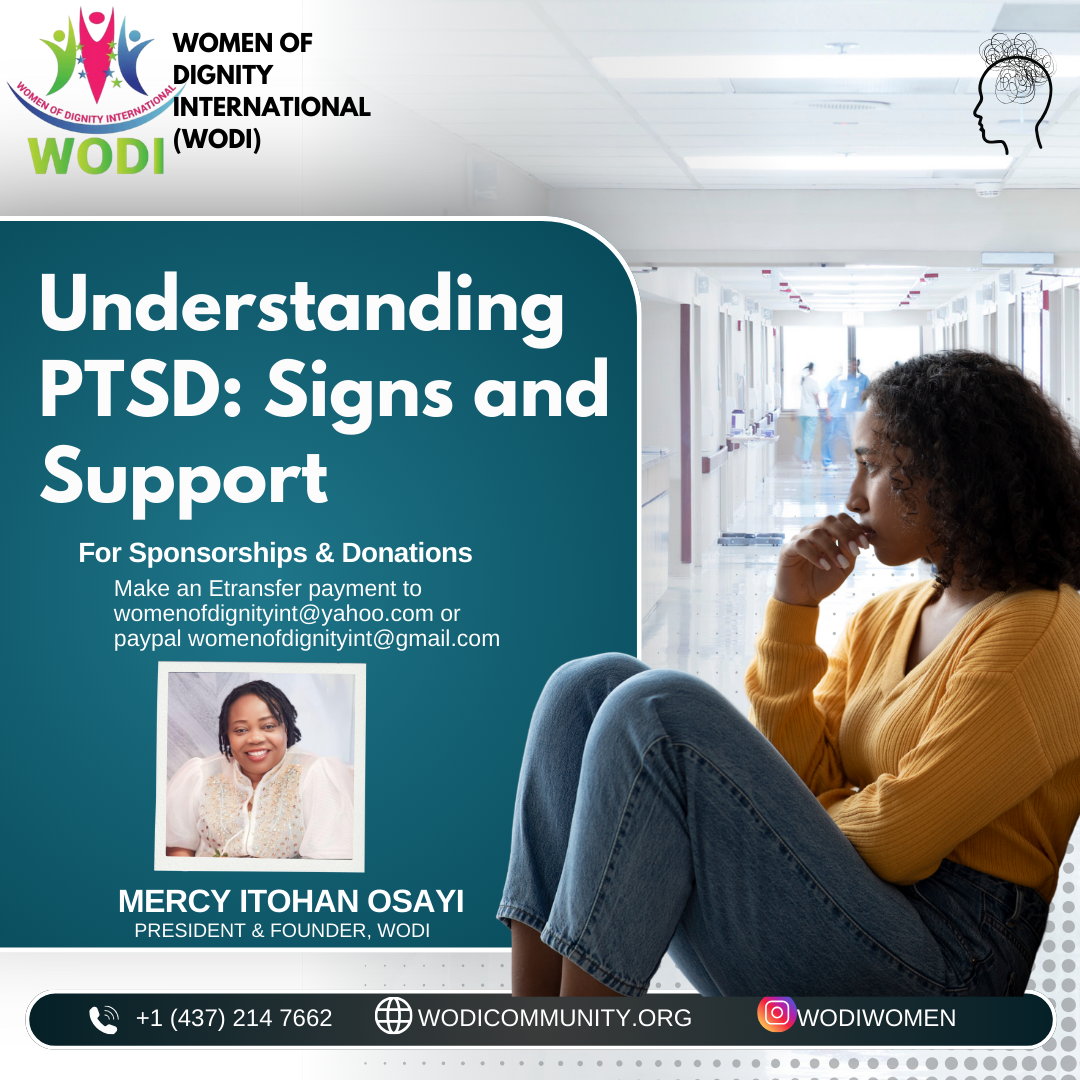Understanding PTSD: Signs and Support

Mar 24 2025
Understanding PTSD: Signs and Support
Post-Traumatic Stress Disorder, or PTSD, is something that many people experience after going through a really tough or scary event. It’s not just about feeling sad or anxious; it can deeply affect how someone thinks, feels, and interacts with the world around them.
What are the Signs of PTSD?
People with PTSD often show a mix of signs that can vary from person to person. Some common signs include:
1. Reliving the Experience: This can happen through flashbacks or nightmares. It might feel like the event is happening all over again, making it hard for someone to feel safe.
2. Avoidance: Many people try to avoid places, people, or activities that remind them of the trauma. This can lead to isolation and a feeling of being disconnected from others.
3. Negative Changes in Thoughts and Mood: Those with PTSD might have trouble remembering important details about the event. They may also feel hopeless, have negative thoughts about themselves or others, and struggle to find joy in things they once loved.
4. Increased Arousal: This can show up as being easily startled, feeling tense or "on edge," or having trouble sleeping. Everyday situations might feel overwhelming.
How Can We Support Someone with PTSD?
If you know someone who is dealing with PTSD, your support can make a big difference. Here are some ways to help:
1. Listen: Sometimes, just being there to listen without judgment can be incredibly comforting. Let them share their feelings at their own pace.
2. Encourage Professional Help: Suggesting they talk to a therapist or counselor can be beneficial. Professionals can provide tools and strategies to manage symptoms.
3. Be Patient: Healing takes time. Understand that there will be good days and bad days. Your patience can help them feel safe as they navigate their journey.
4. Educate Yourself: Learning more about PTSD can help you understand what your loved one is going through. This knowledge can foster compassion and empathy.
5. Offer Practical Help: Sometimes, everyday tasks can feel overwhelming for someone with PTSD. Offering to help with chores, meals, or even just hanging out can provide much-needed support.
In conclusion, understanding PTSD is the first step towards helping those who are affected by it. By recognizing the signs and offering support, we can create a more compassionate environment for healing and recovery. Remember, it’s okay to seek help and talk about these feelings—everyone deserves support on their journey to feeling whole again.
What are the Signs of PTSD?
People with PTSD often show a mix of signs that can vary from person to person. Some common signs include:
1. Reliving the Experience: This can happen through flashbacks or nightmares. It might feel like the event is happening all over again, making it hard for someone to feel safe.
2. Avoidance: Many people try to avoid places, people, or activities that remind them of the trauma. This can lead to isolation and a feeling of being disconnected from others.
3. Negative Changes in Thoughts and Mood: Those with PTSD might have trouble remembering important details about the event. They may also feel hopeless, have negative thoughts about themselves or others, and struggle to find joy in things they once loved.
4. Increased Arousal: This can show up as being easily startled, feeling tense or "on edge," or having trouble sleeping. Everyday situations might feel overwhelming.
How Can We Support Someone with PTSD?
If you know someone who is dealing with PTSD, your support can make a big difference. Here are some ways to help:
1. Listen: Sometimes, just being there to listen without judgment can be incredibly comforting. Let them share their feelings at their own pace.
2. Encourage Professional Help: Suggesting they talk to a therapist or counselor can be beneficial. Professionals can provide tools and strategies to manage symptoms.
3. Be Patient: Healing takes time. Understand that there will be good days and bad days. Your patience can help them feel safe as they navigate their journey.
4. Educate Yourself: Learning more about PTSD can help you understand what your loved one is going through. This knowledge can foster compassion and empathy.
5. Offer Practical Help: Sometimes, everyday tasks can feel overwhelming for someone with PTSD. Offering to help with chores, meals, or even just hanging out can provide much-needed support.
In conclusion, understanding PTSD is the first step towards helping those who are affected by it. By recognizing the signs and offering support, we can create a more compassionate environment for healing and recovery. Remember, it’s okay to seek help and talk about these feelings—everyone deserves support on their journey to feeling whole again.
